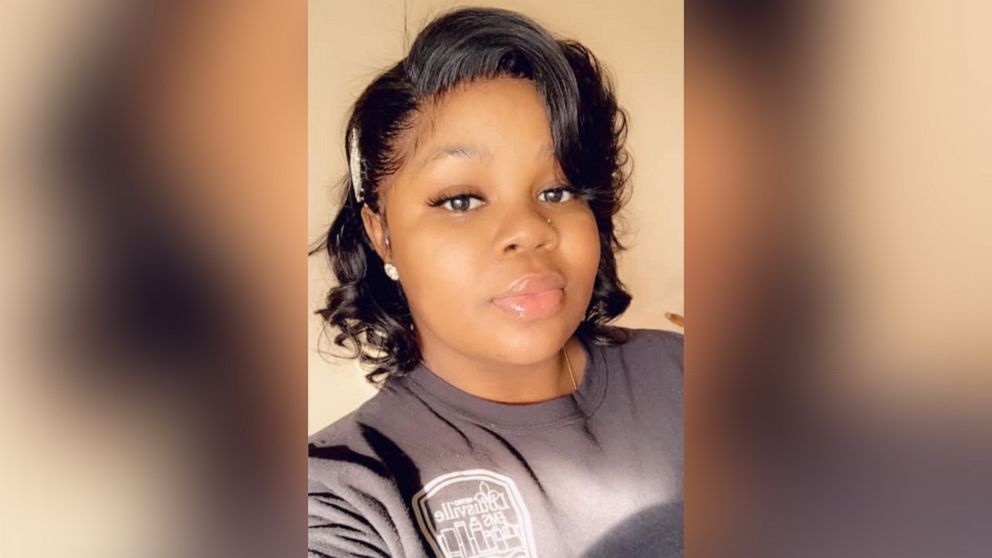Timeline: Inside the investigation of Breonna Taylor's killing and its aftermath
It has been more than eight months since Breonna Shaquille Taylor was gunned down in a hail of bullets by Louisville, Kentucky, police officers who were executing a search warrant.
At least three different law enforcement agencies in the state launched parallel investigations into Taylor's death.
As the months have passed by, the demands for answers have joined the calls for justice for the dozens of other African American men and women killed at the hands of police.
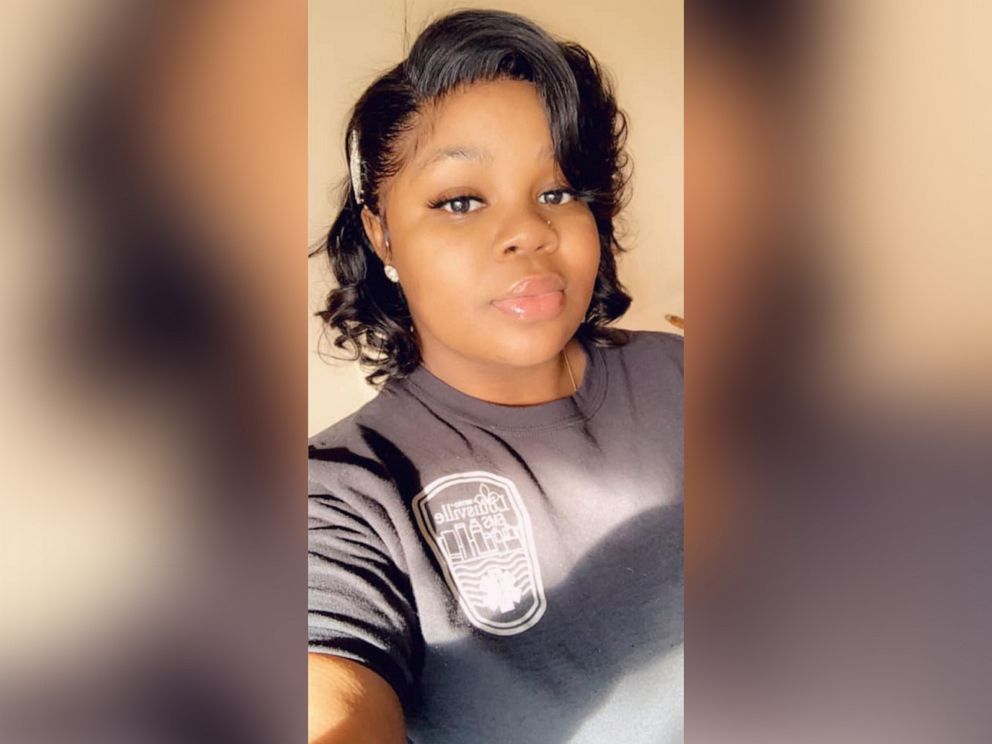
Here's what has happened since Taylor's death:
March 12
Louisville Metro Police Department Detective Joshua Jaynes files a request for a "no-knock" search warrant of Breonna Taylor's home after investigating the activities of Jamarcus Glover, who was known to the police as a drug trafficker, according to the warrant.
Glover is Taylor's ex-boyfriend who, according to police, was using her address to mail drugs through the post office. Police note in the arrest warrant request that they verified with postal inspectors that Glover was receiving packages at Taylor's address.
The "no-knock" warrant is requested "due to the nature of how these drug traffickers operate. These drug traffickers have a history of attempting to destroy evidence, have cameras on the location that compromise Detectives once an approach to the dwelling is made, and a have history of fleeing from law enforcement," according to the court document.
March 13
Minutes after midnight, as Breonna Taylor and her boyfriend Kenneth Walker are asleep inside their ground-floor apartment at the St. Anthony Gardens on Springfield Drive, there are knocks on the front door.
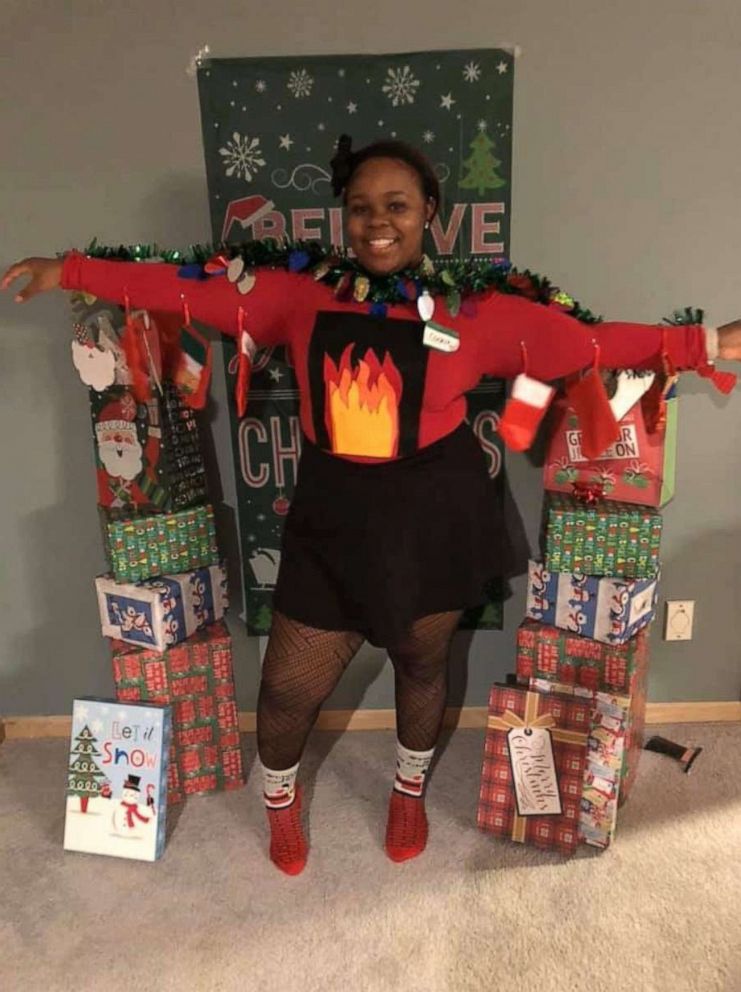
Plainclothes Louisville Metro Police Department Officers Myles Cosgrove and Brett Hankison, and Sgt. Jonathan Mattingly, use a battering ram to force open the green door with a gold No. 4 hanging on it, at which point police say they are met with a gunshot that strikes Mattingly in the thigh.
The three officers blindly return fire with more than 25 bullets -- some entering other apartments, including one with a 5-year-old child.
Walker, a licensed gun owner with no criminal record, calls 911 tearfully pleading for help as he thinks a home invasion is in progress.
"Somebody kicked in the door, shot my girlfriend," says Walker to the 911 dispatcher.
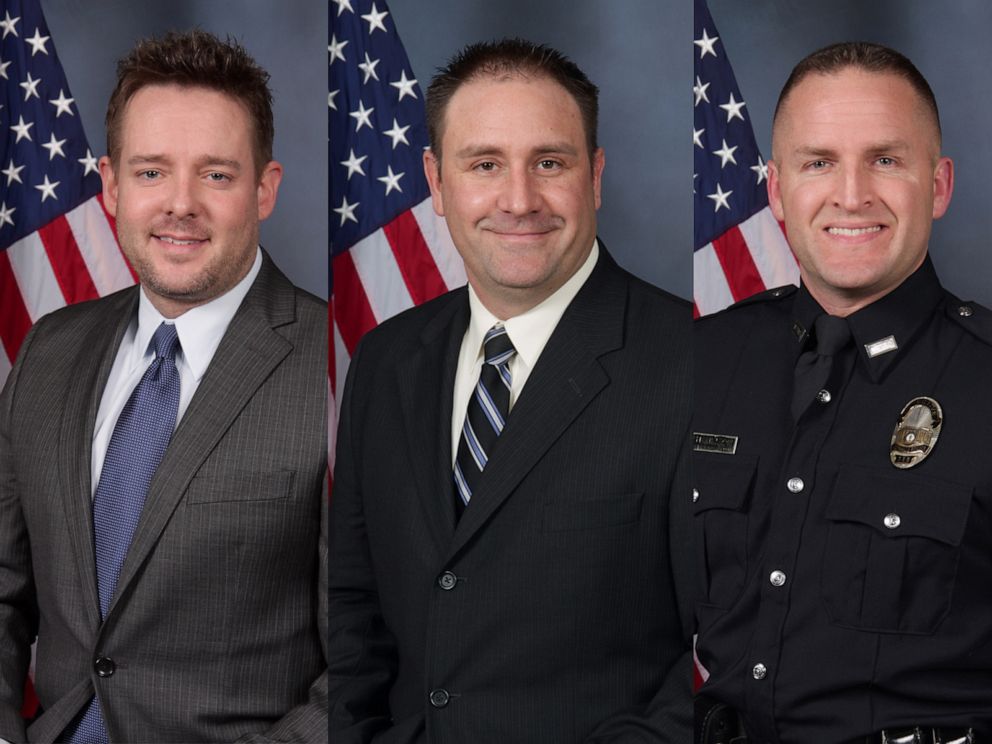
Taylor, 26, is fatally struck by at least eight bullets.
Walker surrenders and is taken into custody on charges of attempted murder of a police officer.
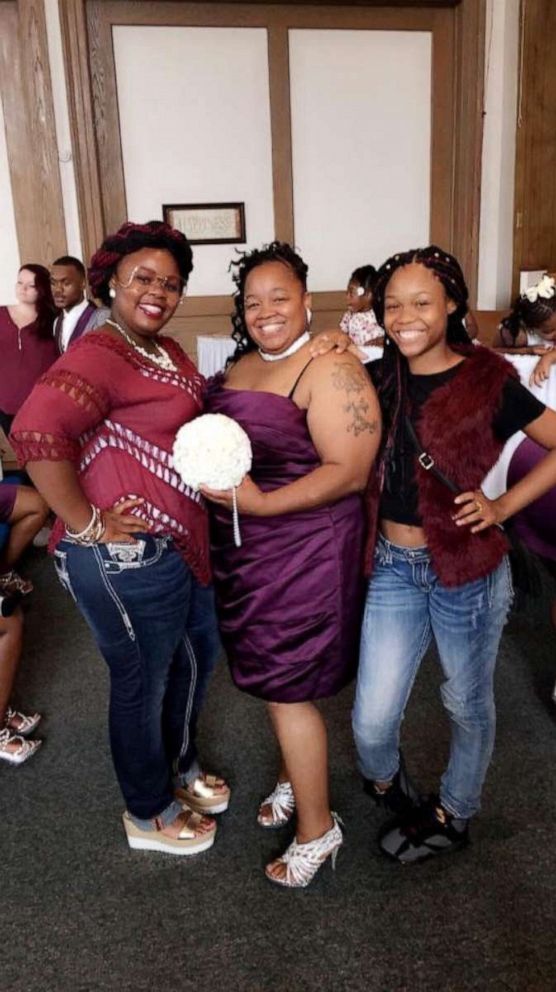
Cosgrove, Hankison and Mattingly are placed on administrative reassignment until the Louisville Metro Police Department's Public Integrity Unit completes its investigation.
Police find no drugs inside Taylor's apartment.
March 20
Taylor's family and friends travel a few miles away to Spring Valley Funeral Home in New Albany, Indiana, for her wake.
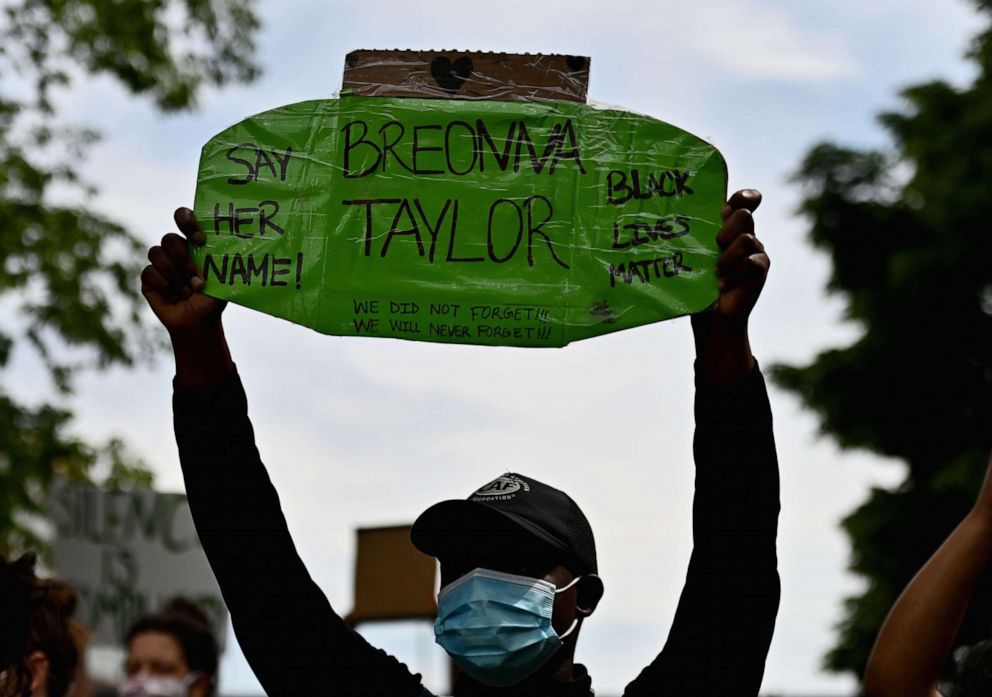
Taylor, born in Grand Rapids, Michigan, where she was raised by her mother, is remembered as "full of life ... and all it had to offer," according to her obituary. She had left home to attend the University of Kentucky before going to become a licensed EMT for the city of Louisville, where she worked on the front lines during the early stages of the coronavirus pandemic.
Funeral services are held the following day at Greater Friendship Baptist Church in Louisville.
March 26
Louisville judge Olu Stevens agrees to release Walker from jail and into home confinement in order to keep the jail population low as a preventative measure against the spread of the coronavirus.
Louisville police union president Ryan Nichols says the judge's decision to release Walker is a "slap in the face to everyone wearing a badge" and has endangered the public.
April 27
Attorneys Sam Aguiar and Lonita Baker file a wrongful death lawsuit in Jefferson District Court against Officers Cosgrove and Hankison and Sgt. Mattingly on behalf of Breonna Taylor's mother, Tamika Palmer.
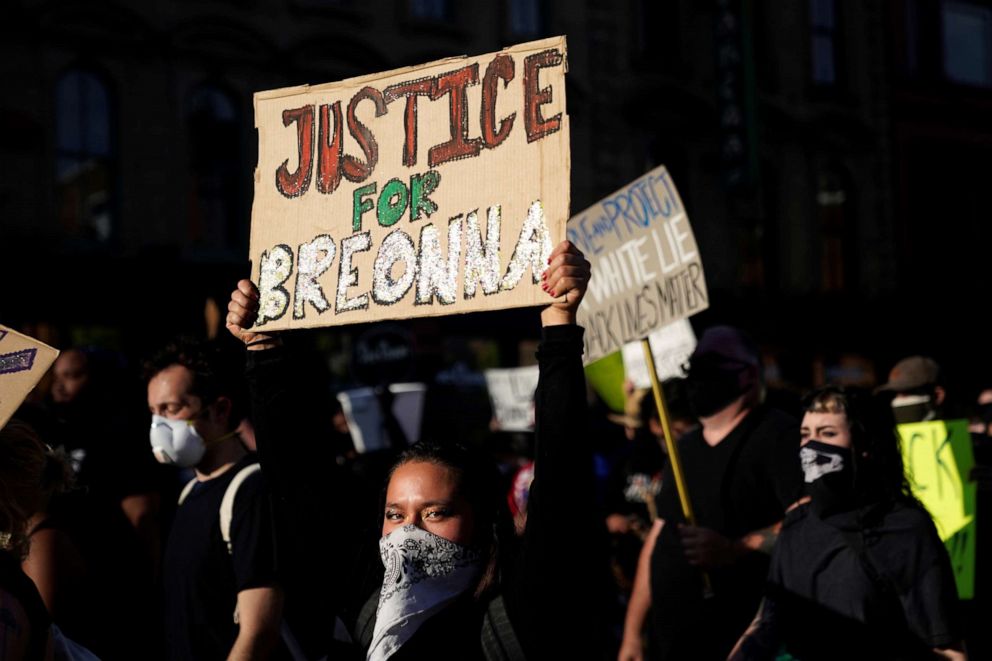
"The Plaintiff brings this personal injury and wrongful death action in order to obtain damages resultant from the Defendants' unlawful conduct, which directly and proximately caused the death of a young, beautiful human being who was also an essential front-line medical professional in this community," according to the lawsuit.
May 15
Louisville Postal Inspector Tony Gooden says that his office was not a part of an inspection of possible drug trafficking activity in packages delivered to Breonna Taylor's address.
Civil rights attorney Ben Crump says that "directly contradicts what the police stated in the affidavit to secure a no-knock warrant for the home."
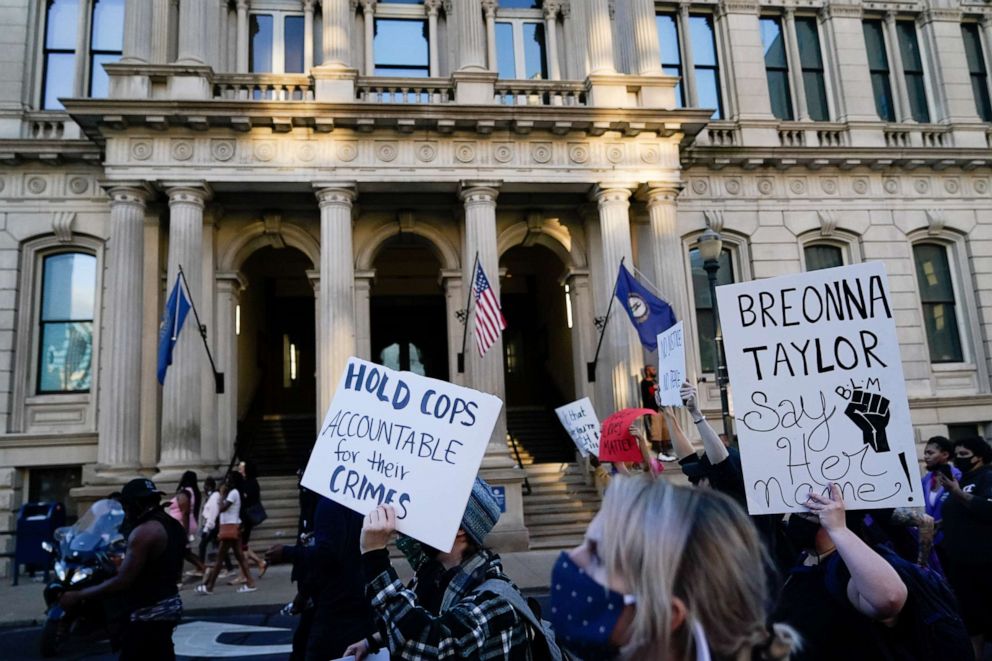
"This revelation validates what we already knew: This young woman was brutally and unjustifiably killed by Louisville police, who supplied false information on the warrant they used to enter her home unannounced. Gooden further stated that 'no packages of interest were going there,'" says Crump.
May 22
Commonwealth Attorney Tom Wine announces that the charges against Kenneth Walker have been temporarily dismissed as the FBI, Department of Justice and Kentucky attorney general open their own investigation into Taylor's death.
"While dismissing the charges is the right thing to do, it comes more than two months after Breonna was killed and Kenneth was arrested. Louisville police spent these months defending their actions and smearing Kenneth's and Breonna's good names. This is just another step to the [Louisville Metro Police Department] taking full responsibility for its actions," says Crump.
June 5
In honor of what would have been Taylor's 26th birthday, writer Cate Young launches an online campaign as a call to action in support of Taylor.
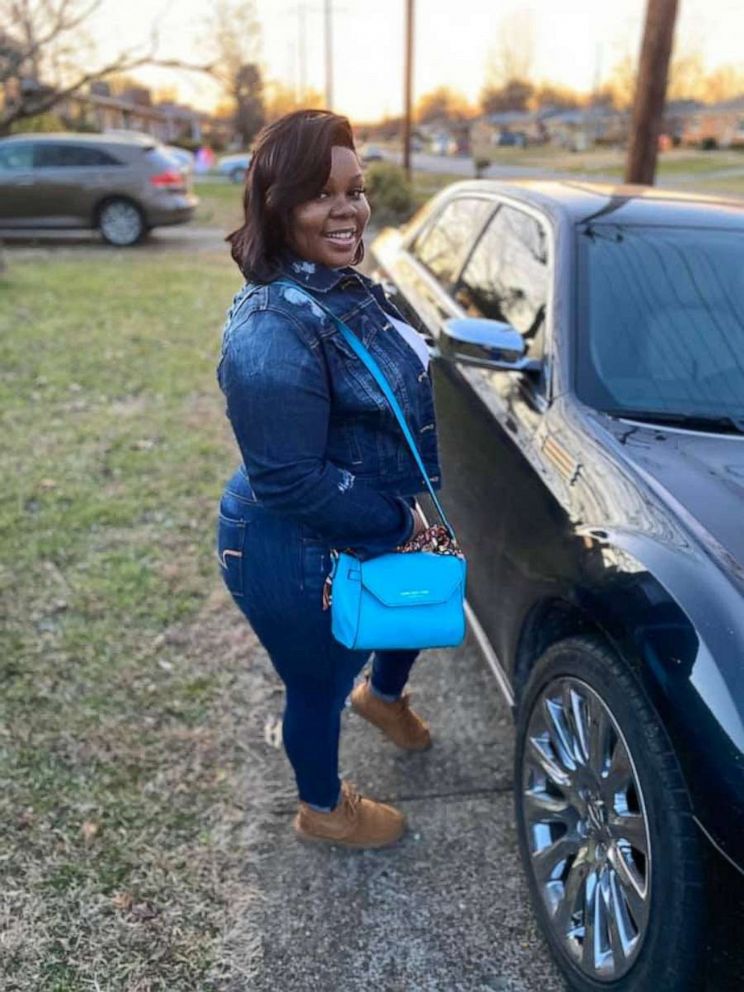
Among other steps, the nine-part plan encourages supporters to use the hashtags "#SayHerName" and "#BirthdayforBreonna" on social media and to send a birthday card to Kentucky's Governor Daniel Cameron demanding charges be filed against the officers.
June 11
The Louisville, Kentucky, Metro Council unanimously passes Breonna's Law.
The new law outlaws "no-knock" warrants and requires body cameras be turned on before and after every search.
June 23
The Louisville Metro Police Department fires Hankison.
The department's internal investigation finds that Hankison violated procedure when he fired 10 rounds into Taylor's apartment while executing the warrant.
Sept. 15
The city of Louisville announces it has reached a record $12 million settlement with the family of Taylor.
The settlement in the family's wrongful-death lawsuit includes a major police reform package "to prevent a tragedy like this from ever happening again," Mayor Fischer says.
Sept. 23
A Kentucky grand jury indicts Hankison on three counts of wanton endangerment.
The charges against Hankison stem from bullets that penetrated a wall of the residence and entered a neighboring apartment, according to the attorney general.
Neither he nor the other two officers involved in the fatal encounter are charged in her death. The investigation finds that Mattingly and Cosgrove were "justified in their use of force after having been fired upon by Kenneth Walker," Cameron says.
Sept. 25
Taylor’s family and boyfriend, Walker, hold a news conference to respond to the grand jury’s decision and to demand Attorney General Cameron release the transcripts from the grand jury proceedings.
During the news conference, Crump, the attorney for Taylor’s family, says they were “heartbroken, devastated and outraged and confused.”
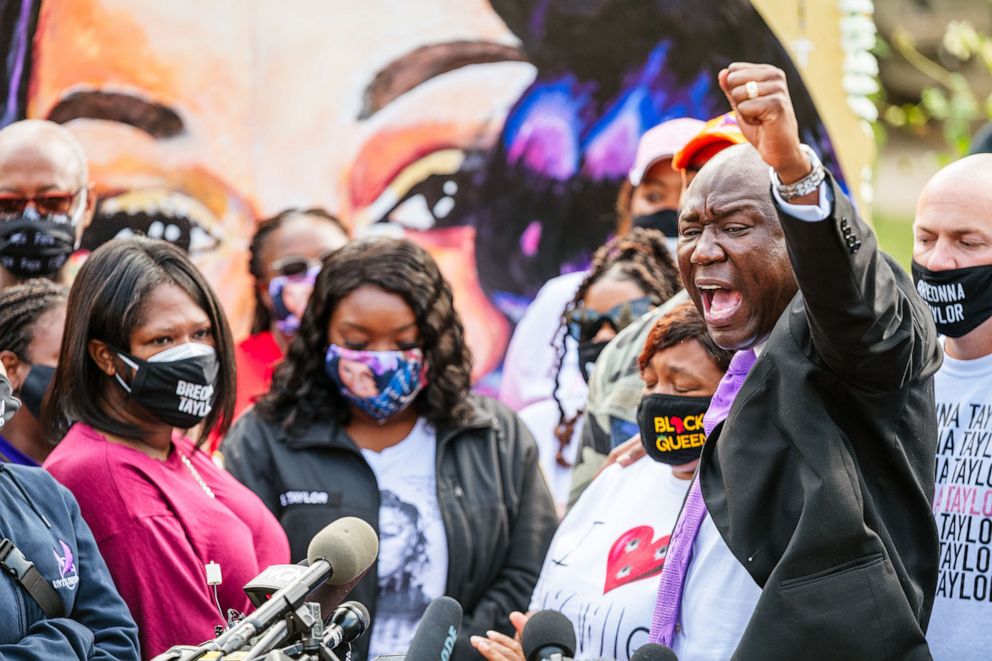
Crump calls for the release of the grand jury transcripts “so we can have transparency.” Walker’s attorneys also push for the transcripts and recordings to be released to “promote ‘the ends of justice’ and the search for the truth.”
Sept. 28
A member of the grand jury anonymously files a lawsuit to have a record of the proceedings released and to give the panel’s members permission to speak publicly about their experiences.
Cameron says in a statement that he doesn’t object to the public release of the recordings or to the grand jury’s members speaking out.
He also acknowledges that the only charge he recommended to the grand jury was that of wanton endangerment and that he never recommended homicide charges against any of the police involved in the raid on Taylor’s home.
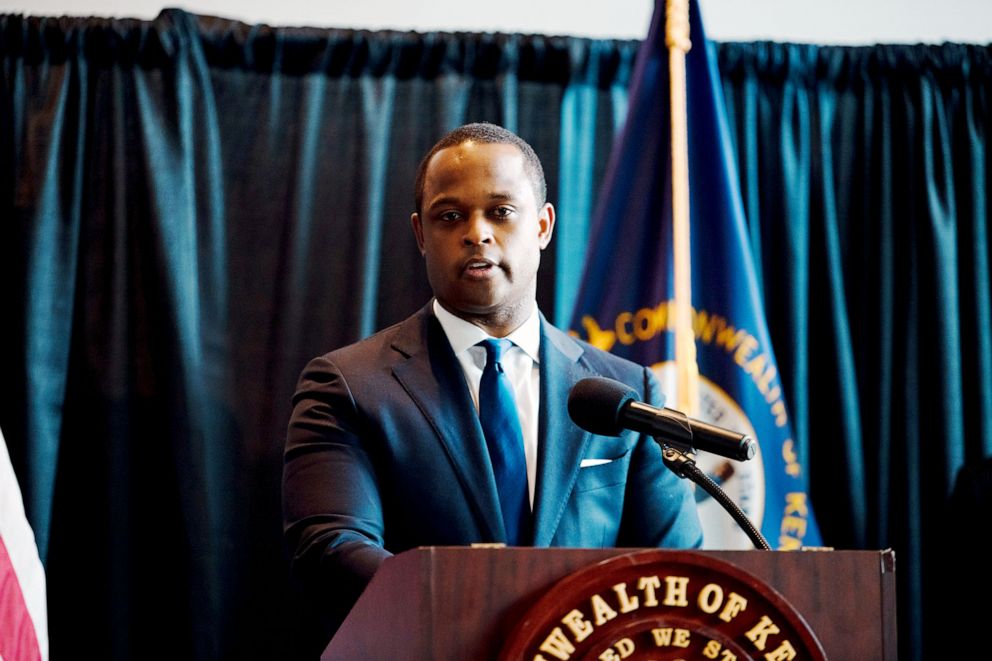
During former officer Hankinson’s arraignment, a judge orders the court to file the grand jury recordings as part of discovery and to release them to the public. Hankinson pleads not guilty to his wanton endangerment charges.
Oct. 2
Audio recordings from the three-day grand jury proceedings are filed.
“I’m confident that once the public listens to the recordings, they will see that our team presented a thorough case to the Jefferson County Grand Jury,” Cameron says in a statement. “Our presentation followed the facts and the evidence, and the Grand Jury was given a complete picture of events surrounding Ms. Taylor’s death on March 13.”
Attorney Aguiar, representing the Taylor family, tells ABC News in a statement that after listening to the recordings, “the grand jury was great. [They] paid attention, asked important questions, sought critical evidence that was not made available to them, had critical observations, and they were stonewalled every step of the way by a prosecution team that had a predetermined outcome and a disingenuous agenda.”
Oct. 11
Kevin Glogower, the attorney representing the anonymous grand juror who sued to allow panel members to speak about the proceedings, responds to a motion filed by Cameron.
In the motion, the attorney general argues that granting the grand jurors the ability to speak out publicly goes against centuries of U.S. customs and traditions and asks for a stay of any order allowing the juror to speak out publicly until after the state can file an appeal.
In his response, Glogower claims that courtroom secrecy had already been compromised by the release of the recordings of the grand jury discussions and that there should be nothing to hide.
Oct. 20
Jefferson Circuit Court Judge Annie O’Connell rules in favor of the anonymous grand juror to speak publicly about the court proceedings.
Following the ruling, the grand juror, who was unidentified, claims in a statement through Glogower that prosecutors only presented the three wanton endangerment charges against Hankinson.
“Being one of the jurors on the Breonna Taylor case was a learning experience. The three weeks of service leading up to that presentation showed how the grand jury normally operates. The Breonna Taylor case was quite different,” the statement said. “After hearing the Attorney General Daniel Cameron’s press conference, and with my duty as a grand juror being over, my duty as a citizen compelled action. The grand jury did not have homicide offenses explained to them. The grand jury never heard anything about those laws. Self-defense or justification was never explained either.”
The juror also says the grand jury wanted to consider additional charges against the officers but was told there wouldn’t be anymore because prosecutors felt they couldn’t make them stick.
On the same day, Sgt. Mattingly, who was shot in the thigh the night Taylor died, gives an exclusive interview to ABC News and Louisville’s Courier-Journal. He expresses empathy for Taylor’s family and talks about what happened on the night of March 13 as well as what he’d have done differently.
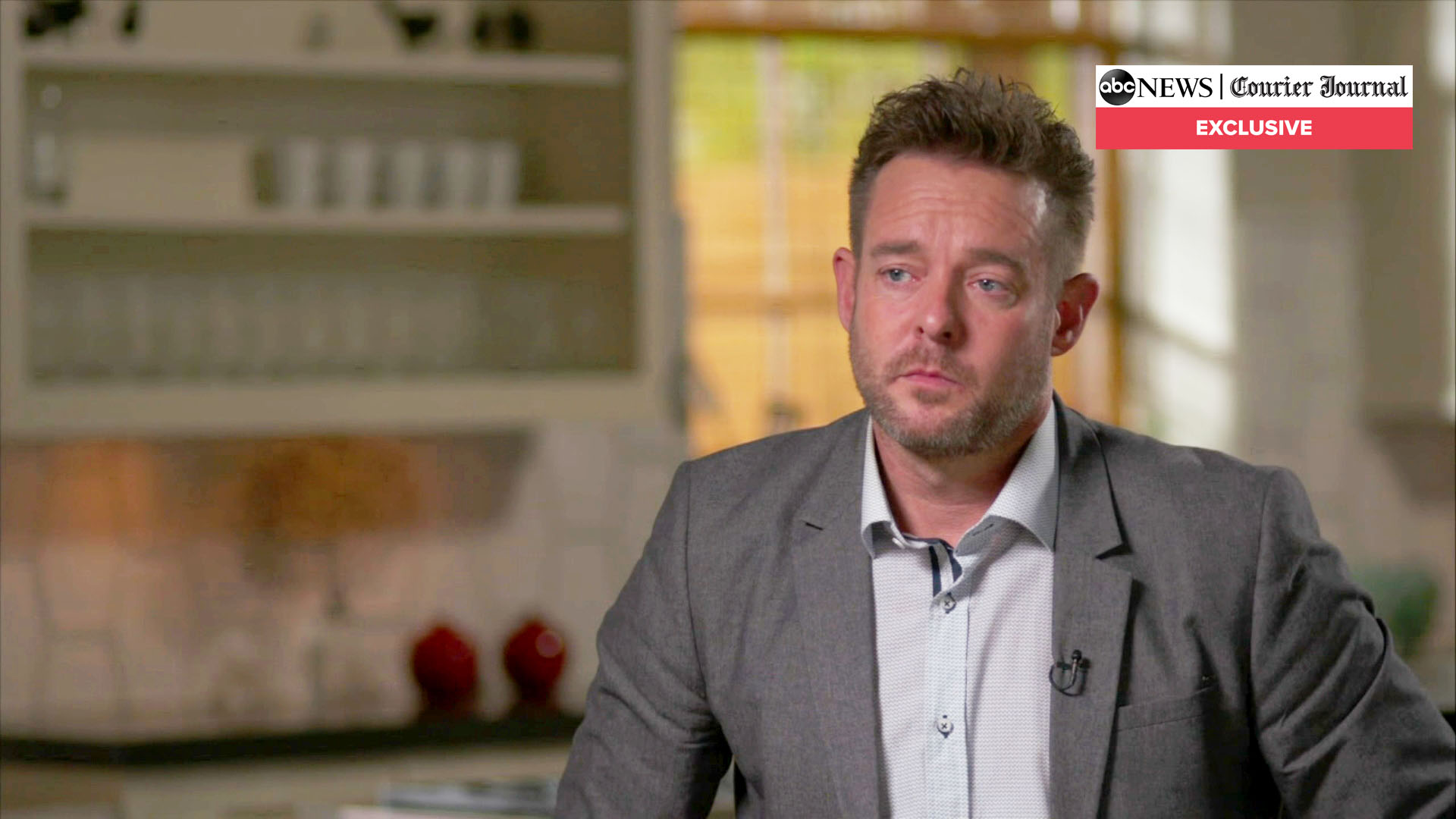
“We expected that Breonna was going to be there by herself. That’s why we gave her so much time, and in my opinion, that was a mistake,” Mattingly tells “Good Morning America” co-anchor Michael Strahan. “What I would have done differently, the answer to that is simple now that I’ve been thinking about it. Number one, we would have either served the no-knock warrant or we would have done the normal thing we do, which is five to 10 seconds to not give people time to formulate a plan, not give people time time to get their senses so they have an idea of what they’re doing. Because if that had happened … Breonna Taylor would be alive, 100%.”
Oct. 21
Kenneth Walker, Breonna Taylor’s boyfriend, also gives an interview to ABC News and Louisville’s Courier-Journal. He recounts what he witnessed on the night she died.
Walker says that after he and Taylor heard the banging on the door and there was no response when Taylor “screamed out, ‘Who is it,’” he grabbed his legally owned gun and they went to answer the door.
“When we get right in the doorway of the bedroom, the door flies open,” Walker says. “Protect Breonna. Protect myself. That’s what’s going through my head. I figure it’s intruders … I couldn’t see anybody. It was pitch black.”
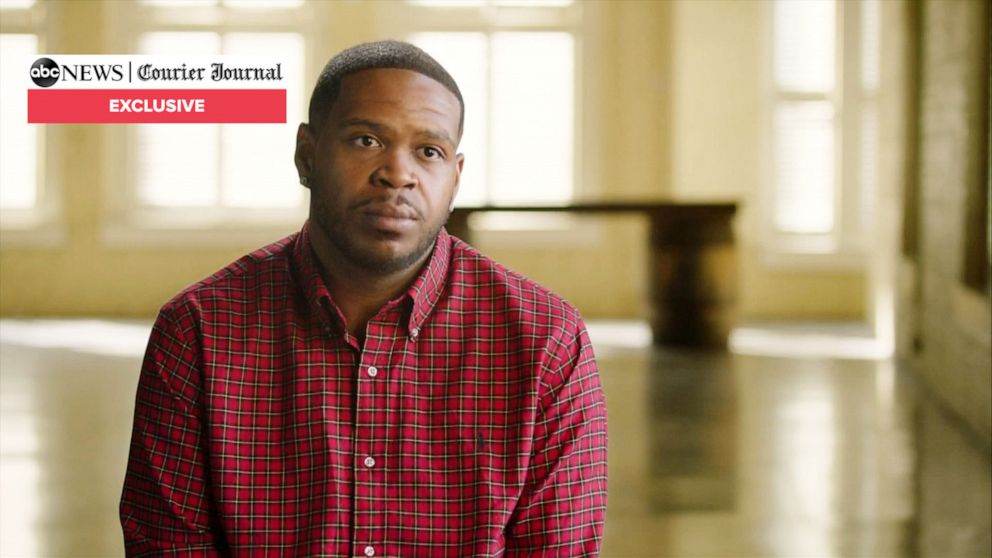
During the interview, Walker claims his gun was pointed at the ground when he fired the single shot. Sgt. Mattingly disputed this claim in his interview from a day earlier, saying that Walker “wasn’t shooting at the ground.”
Walker also says that if police had identified themselves, Taylor’s death could have been avoided. Louisville Metro Police Department claims its officers had identified themselves as police with a warrant before entering Taylor’s apartment.
Oct. 22
A second person who served on the Breonna Taylor grand jury releases a statement anonymously through attorney Glogower, saying they agree “wholeheartedly with the statement released by anonymous grand juror #1.”
Oct. 29
Attorney General Cameron defends his decision not to give jurors the option of murder charges against the officers involved.
“It was not our judgment that there should be other charges that the grand jury should be advised of,” Cameron tells ABC affiliate WBKO in Bowling Green, Kentucky. “The grand jury can, as an independent body, bring up other questions or other issues. I fully take responsibility for the recommendation that we made. Based on the facts, that was the appropriate recommendation to make.”
He reiterates to WBKO that the officers who opened fire inside Taylor’s home were “justified” in their actions because they had “returned fire after having been fired upon.”
“It is a sad case,” he says. “But my responsibility and job as the prosecutor is to make sure that the facts are presented to the grand jury. We made the recommendation as it relates to wanton endangerment to this officer. Not everybody is going to be happy with your decision and I have to live with that, but we did the right thing in this process.”
Nov. 20
ABC News’ “20/20” airs a two-hour documentary detailing the night Breonna Taylor was killed through deeply personal home videos, new exclusive interviews and police body camera videos. Watch the full story, “Breonna Taylor: Say Her Name,” on Friday, Nov. 20, at 9 p.m. ET on ABC.
ABC News' Anthony McMahon contributed to this report.
